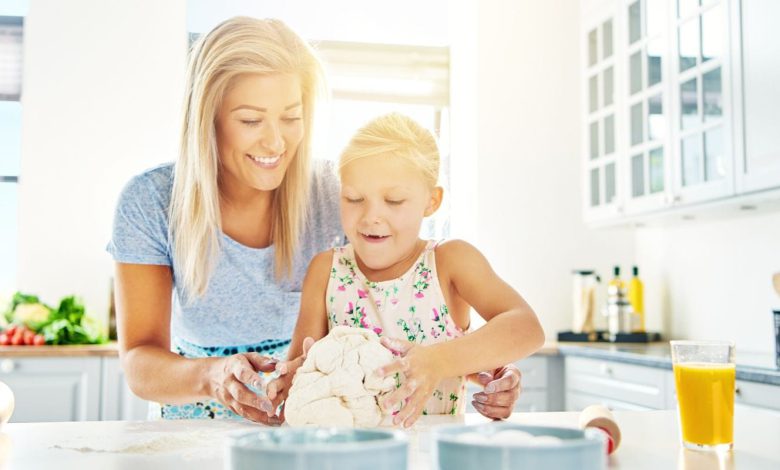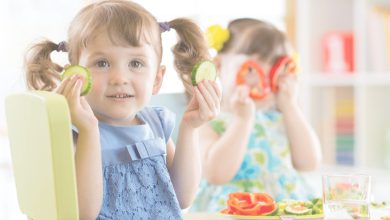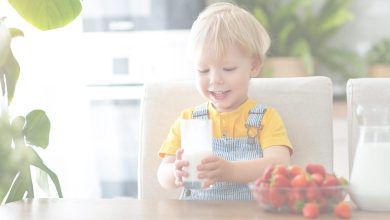Using Cooking for Education: What You Need to Know

Using Cooking for Education: What You Need to Know
Cooking may not be the first thing that comes to mind when you think about educating your child while getting them excited to try something new.
During the process of preparing meals, children not only get to participate in a fun activity with the family, but they also learn valuable skills like reading, math, and science. In addition, cooking with kids can prepare them for their future by teaching them how to cook for themselves. Keep reading to learn more about how cooking can be educational.
Cooking Builds Key Skills
Inviting your kids into the kitchen can assist them in multiple ways. Learning number sequence and measurements is perhaps the first thing children will learn during their time in the kitchen. Activities like counting the number of directions, keeping track of the order of ingredients, as well as measuring out different ingredients all work to help kids develop key skills. In addition to accumulating mathematical skills, children will also expand their vocabularies by learning words that are usually associated with recipes.
Many children tend to be selective when it comes to what they will and won’t eat. Introducing foods in fun ways—like ants on a log—can lead children to eat otherwise unappealing foods such as celery. However, if you simply put celery sticks and peanut butter on a plate, children may not be as interested as they would be if they were given the opportunity to participate in the food’s preparation and presentation.
The senses help children learn, especially as they grow. Cooking engages all five senses, thereby strengthening them and building familiarity. Touching, smelling, seeing, hearing, and tasting the food can also help with alleviate pickiness.
When kids can smell the pepperoni and see the cheese melt in the oven, it creates a new experience and gives them a different perspective on food. Becoming more familiar with their senses will incline kids to be more open to trying different foods.
Cooking also develops a sense of pride. Young kids are most excited when they get to display what they have done, and this concept can be applied when cooking. It will provide children with a sense of achievement, which is good to instill at a young age.
Presenting a dish as “their” dish can make children feel confident in what they prepared. Oftentimes, a recipe will not always be followed to the letter when you’re having fun cooking, but you should still let them know you are proud of them.
What Kids Can Do in the Kitchen
The idea of having your child help in the kitchen can be scary, but there are tasks you can give your child without putting them at risk. Activities like flipping through a cookbook and crushing crackers for a crust are simple jobs that a toddler can help with.
For children who are a little bit older, you can increase the skill level of the tasks so they continue to feel like they are a part of the process. School-age kids will have more control at this stage in their development, so you can start to implement kitchen tools like measuring cups and spatulas. In addition, school-age kids can handle food prep like helping to pour liquids into measuring cups, placing the toppings on a pizza, and cleaning vegetables.
Pre-teens can use tools like electric mixers or food processors if you’re preparing a dough for dessert. Kids this age can also handle more complex food prep duties. They are also skilled enough to crack an egg and even cut vegetables.
Benefits of Cooking Together
Along with introducing a new activity, cooking with your children can create a window for one-on-one time together. It can lead to conversations that allow parents to keep up with what is happening in their children’s lives. Cooking as a family helps kids feel included and get a boost to their security.
Quality time is crucial to child development, and cooking is one of many activities that parents can do to spend that time with their children. Children will trust their parents more and even look forward to spending time in the kitchen. This will instill many traits and behaviors that they can benefit from as they move through different phases in their life.
One of the best things about exploring cooking with your children is that they can keep the skills and recipes that they learn forever. Not only does cooking teach children important life skills, but it can lead to the start of family traditions that they can pass down to their children.
Want to learn more about history lessons at Little Sunshine’s Playhouse & Preschool? Contact a location near you today!
Read our previous blog posts to learn more about cooking safety for children:
Get Cooking with Kitchen Safety for Kids





